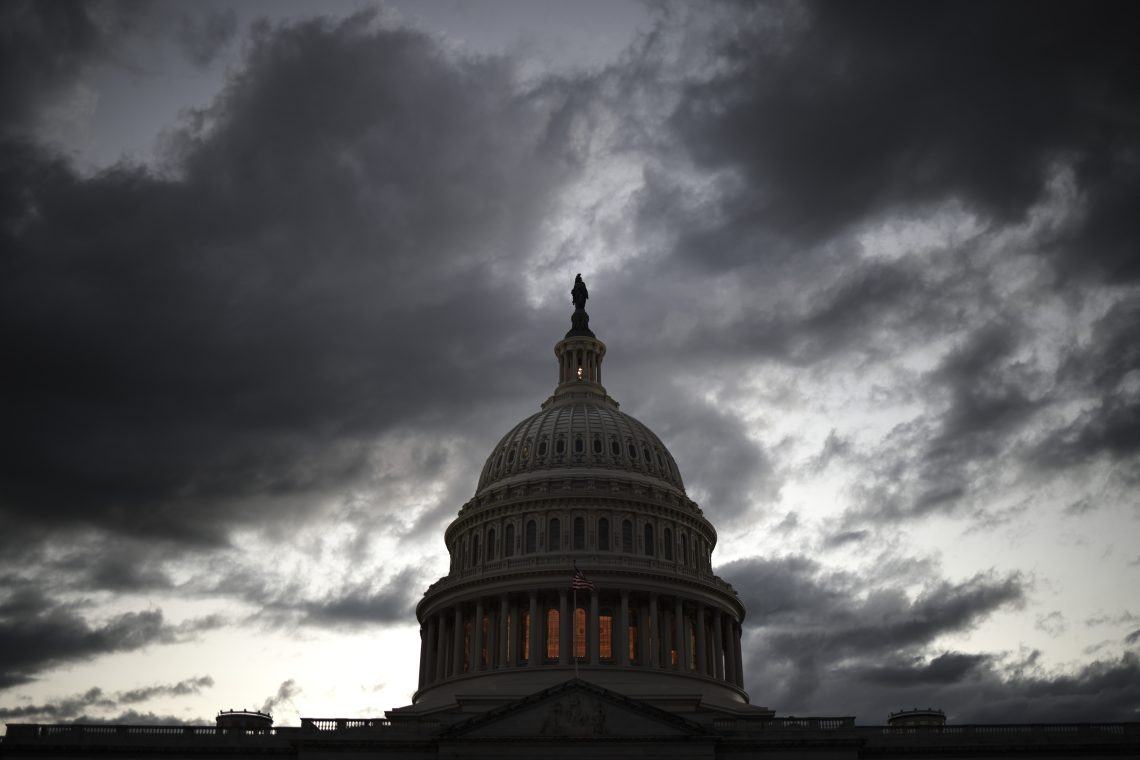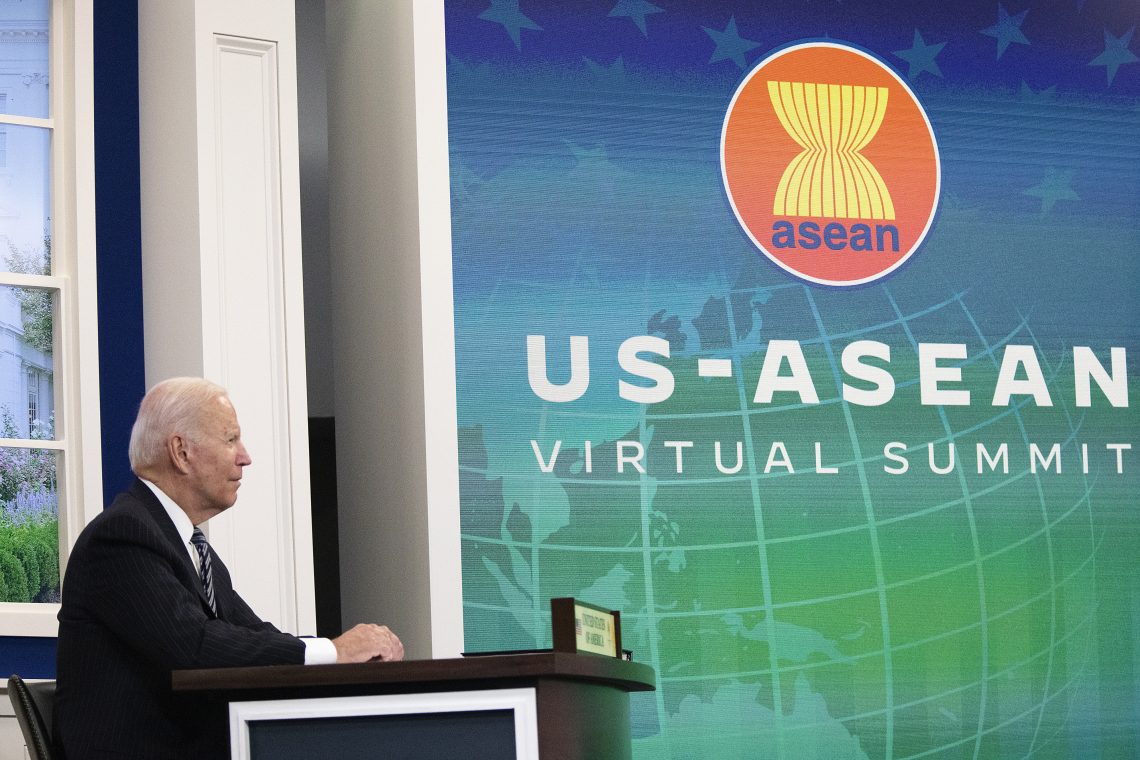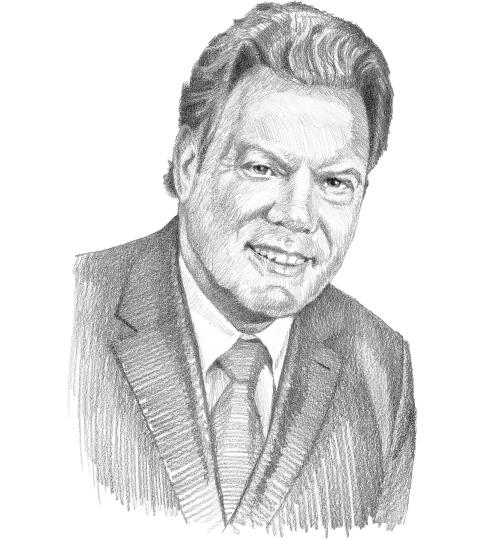Washington’s winter of discontent
Washington is in a gloomy mood, and the White House’s difficulties could make it harder to reinvigorate the transatlantic relationship.

In a nutshell
- Biden administration insiders worry about a gloomy U.S. public mood
- The president’s troubles could make him a lame duck by 2022
- That outcome would hinder efforts to strengthen the U.S.-Europe relationship
This winter, Washington is in a sullen mood, despite the Biden administration passing the $1.9 trillion American Rescue Plan and $1 trillion investment infrastructure bill. Together, the initiatives are worth around 14 percent of the United States’ gross domestic product (GDP), a financial package 50 percent larger than the entire Italian economy ($1.9 trillion). Billions of dollars of “economic impact payments” have already landed in peoples’ bank accounts ($2,800 for a married couple, $1,400 for a single person), and the country’s creaking infrastructure (roads, bridges, rail services, broadband connections) will receive a significant boost over the next decade. The stock market is booming, and the country is chalking up enviable economic growth rates.
This perpetually Democratic city still feels relief at the departure of former President Donald Trump and expects that the House committee investigating his role in the January 6, 2021 attack on the Capitol will eventually provide proof of his complicity. Democrats here somewhat nervously anticipate that an indictment for this or financial malfeasance will end Mr. Trump’s plans to run for president in 2024.
Regardless, even steadfast Democrats foresee a winter of discontent. Society and the media are polarized between Trump supporters and their opponents. There is much talk in Washington about high-profile trials in U.S. courts that have brought out sharp divisions on the right of citizens, including teenagers, to equip themselves with semiautomatic weapons and defend themselves in murder cases on the grounds of self-defense.
Rifts and risks
The Democratic Party is riven with disputes between “moderates” and “progressives.” The latter are pursuing an agenda on diversity and inclusion, which some mainstream members of the party see as excessive and discouraging to voters, even if they subscribe to its basic tenets. Two Democratic fiscal conservatives in the Senate are jeopardizing President Biden’s ambitious nearly $2 trillion “Build Back Better” package, which still faces many hurdles. Republicans fret about the resulting increase in public debt. If passed, the package will represent a step toward funding green infrastructure and providing Americans with the kind of support for health, education, child and elderly care which most Europeans take for granted.
Loss of control of the House of Representatives and of the Senate in the 2022 midterm elections seems likely.
Despite these achievements, which only a president deemed centrist could pull off, media sympathetic to Donald Trump regularly cast aspersions on President Biden’s mental powers. Some Democrats also mutter darkly about this and criticize decisions made without more consultation, such as the timing of the withdrawal from Afghanistan and how the AUKUS agreement with Australia and the United Kingdom, with its attendant submarine sales, was announced. President Biden’s approval ratings are low, and in 2024 he will be 82 years old, making him an implausible presidential candidate in that year’s election. Many believe Vice President Kamala Harris does not have what it takes to replace him.
Loss of control of the House of Representatives and the Senate in the 2022 midterm elections seems likely, leaving President Biden a lame duck during his last two years in office. The narrow upset victory of Republican Glenn Youngkin in Virginia’s November gubernatorial election is widely taken as a harbinger of this. However, this setback may have been due to specific features of the Virginia race.
These gloomy prognostications are exacerbated by worries about inflation, which is on the rise, eroding nominal wage gains, savings and the benefit a sitting president would typically derive from a booming economy. Inflation may reflect the post-lockdown reopening of the economy, pent-up demand, supply chain constraints and other structural factors, but President Biden’s opponents can easily attribute it to bloated public spending.
The risk of a fourth Covid wave, partly due to low vaccination rates, contributes to the anxious mood, especially in southern states. Squabbles over mask mandates at the local level and President Biden’s proposed vaccine mandate at the national level add to public apprehensions and confusion.
Atlanticism renewed?
There has been an influx of Europeanists into the Biden administration, leaving some Washington think tanks scrambling to fill vacancies. The administration now includes officials with a track record of commitment to common transatlantic values and joint initiatives, going back to the Obama, Clinton and Carter administrations. But Senate confirmation of nominations to key diplomatic posts is proceeding at a snail’s pace. The president seems to base critical decisions on personal convictions and the advice of just a few trusted advisors.

Several steps suggest that President Biden is accentuating the pivot to Asia, announced by former President Obama in an address to the Australian parliament a decade ago. These moves include the appointment of a senior Asia specialist to the National Security Council, President Biden’s participation in the October U.S.-ASEAN summit (which former President Trump had skipped since 2017), summit meetings with Chinese President Xi Jinping and the aforementioned submarine sales to Australia.
Some Washingtonians put this in perspective by arguing that China and Asia pose geopolitical and geo-economic challenges to the United States. Europe, on the other hand, is a partner with shared values underwritten by NATO, a military alliance that President Biden, unlike his predecessor, warmly endorses.
Many in Europe first saw President Biden as “like-minded” and inclined to repair the bonds battered by President Trump’s treatment of allies as freeloaders and unscrupulous commercial competitors. But today, some Europeans find President Biden’s “foreign policy for the middle class” a continuation of his predecessor’s “America first” doctrine, albeit couched in softer language and moderated by compromises on steel and aluminum tariffs, as well as the long-standing Airbus-Boeing dispute, and by the establishment of a new U.S.-EU Trade and Technology Council.
Nonetheless, there is little sense that Europe is back in focus in Washington. Russia’s threat to Ukraine attracts more attention than initiatives from the European Union to tackle Covid-19 or rein in Big Tech. Kiev, London and Warsaw still seem to carry more weight here than Berlin, Paris or Brussels.
Washington intellectuals chide Europe for its cumbersome structures and internal divisions.
The EU is reproached for go-it-alone initiatives toward China and Russia, including the ill-fated Comprehensive Agreement on Investment with Beijing, hastily signed shortly before Mr. Biden took office. Before the current standoff with Moscow over Ukraine, President Biden had come to terms with the Nord Stream 2 gas pipeline from Russia to Germany, currently facing procedural legal challenges. But the new pipeline is criticized in Washington as reinforcing Europe’s energy dependence on Russia. Secretary of State Antony Blinken announced fresh sanctions on Russian operators in November, and Washington has implied that Russia must end military intimidation of Ukraine if Nord Stream 2 is to have a future.
President Biden’s advisors are allergic to calls for the EU to develop “strategic autonomy,” seeing this as distancing the old continent from the U.S. But they are relieved that most EU governments do not share the French stance on strategic autonomy and remain robust Atlanticists. Washington has long called for higher European defense expenditure, provided that increased capabilities are deployed to strengthen NATO.
Policy intellectuals in Washington have grown impatient with talk of Europe’s soft power and criticize its foot-dragging on granting EU membership to aspirants in the Balkans, where the U.S. is concerned about increased Chinese and Russian involvement. They also chide Europe for its cumbersome structures and internal divisions while expressing doubts about its appeal in the Indo-Pacific.
A closing window of opportunity
These preoccupations are a spur to action by Washington institutions that remain dedicated to transatlantic cooperation. Plans are afoot to remind Americans of the importance of shared transatlantic values and interests, and of the need for a united approach to China. Think tanks aim to communicate better the benefits to Americans of European investment in the U.S. in terms of local economic development and jobs.
To be effective, this communication needs to be accompanied by parallel efforts in Europe to dispel the notion of a new transatlantic rift. The EU had no choice but to support President Biden’s December virtual democracy summit, given its normative claims, the increased weight and influence of authoritarian regimes and the weakening of democratic systems worldwide. Still, the summit’s intended message was drowned in criticism of anomalies in the guest list.
The window of opportunity for initiatives to shore up transatlantic cooperation is narrow if worries about the 2022 midterm Congressional elections are realized. Atlanticists have an uphill battle in gaining the attention of Americans more focused on Covid-19, inflation and high-profile trials. As winter begins to bite, the mood in Washington reflects doubts and uncertainty about the resilience of the American political system and its links with allies across the Atlantic.







